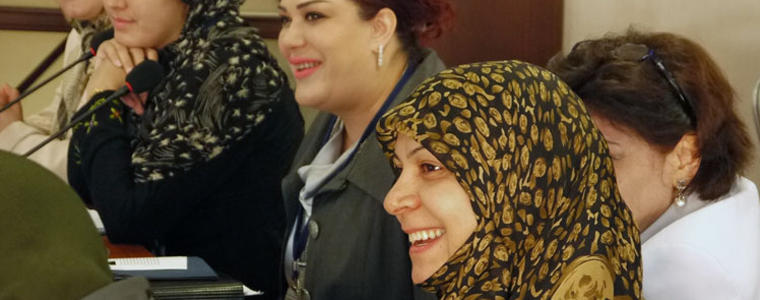Afghan and Iraqi Women Offer Lessons Learned to Women of the Arab Spring
Kathleen Kuehnast, director of the Center for Gender and Peacebuilding and Manal Omar, director, of the Iraq, Iran and North Africa Program, discuss a recent meeting in Istanbul with Afghan and Iraqi women leaders to map out practical steps forward for women in their own transitional countries.

Afghan and Iraqi women leaders recently met in Istanbul to map out practical steps forward for women in their own transitional countries. This first-of-its-kind dialogue is breaking down mutual stereotypes between Afghan and Iraqi women. Together both groups of women leaders express their concerns about the negative trends for women in North Africa, and want to offer their lessons learned from years of conflict and transition.
The dialogue is setting in motion a process between Afghan and Iraqi women for developing lessons learned for women of the Arab Spring. Both groups confirm that gender mainstreaming is essential, as is participation in constitution writing and peace processes.
An example of one of the mutual lessons learned is the essential importance of quotas for women in parliament. However, even though it is an important step forward, it is not an end game. Beyond the national level, quotas must also be established at the local level governments and within the political parties. As one of the Iraqi participants expressed, "democratization is the friend of women." Both groups recognize that securing women's rights needs a long-term strategy.
Nonetheless, immediately after conflict, they must take advantage of the short-term window of opportunity. This will help secure women's engagement and protection in the new, emerging social contract. Many other lessons learned were offered in the Istanbul dialogue and will be detailed in a forthcoming special report.



